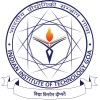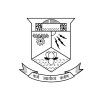📢 Our paper titled "Scalable Learning of One-Counter Automata via State-Merging Algorithms" got published (Dec 2025)
📢 Invited by ACM India to present our works "Learning Deterministic One-Counter Automata in Polynomial Time" and "Learning Real-Time One-Counter Automata Using Polynomially Many Queries" at ARCS 2026 (November 2025)
🧾 Our talk titled "Learning Deterministic One-Counter Automata in Polynomial Time" got accepted for presentation at RHPL 2025 (November 2025)
🏛️ Joined Université Libre de Bruxelles as a postdoctoral researcher (November 2025)
🎙️ Presented our work on learning deterministic one-counter automata at RP 2025, Spain (October 2025)
📢 Our paper titled "Scalable Learning of One-Counter Automata via State-Merging Algorithms" got accepted for publication at FSTTCS 2025 (September 2025)
🧾 Our abstract titled "Learning Deterministic One-Counter Automata" got accepted for presentation at RP 2025 (August 2025)
🎙️ Presented our work on learning one-counter automata in polynomial time at IIT Bombay (July 2025)
🏛️ Research stay at TIFR Mumbai (July 2025)
🧾 Our work titled "Learning Deterministic One-Counter Automata in Polynomial time" got accepted for presentation at Highlights 2025 (June 2025)
🎙️ Presented our work on learning one-counter automata in polynomial time at LICS 2025, Singapore (June 2025)
🏆 Received grant from Google for our work on learning one-counter automata (May 2025)
✈️ Received ACM/IARCS travel grant for attending LICS 2025 (May 2025)
🎙️ Presented our work on learning one-counter automata at TACAS 2025, Canada (May 2025)
📢 Our paper titled "Learning Real-Time One-Counter Automata Using Polynomially Many Queries" got published (May 2025)
🎖️ Selected for scholarship for the Logic Mentoring Workshop at LICS 2025 (April 2025)
🎉 Successfully defended my Ph.D. dissertation titled "Learning and Equivalence of One-Counter Systems" (April 2025)
📢 Our paper titled "Equivalence of Deterministic Weighted Real-Time One-Counter Automata" got published (April 2025)
🌍 Awarded ACM/IARCS travel grant for attending TACAS 2025 (April 2025)
🎙️ Presented our work on learning one-counter automata using polynomially many queries, TIFR Mumbai (April 2025)
🏛️ Research stay at TIFR Mumbai (March 2025)
💰 Awarded with the ETAPS 2025 scholarship for participating in TACAS 2025 (March 2025)
🧳 Received travel grant from ACM India for attending ARCS 2025 (March 2025)
🎙️ Lightning talk on weighted one-deterministic counter automata at ACM ARCS 2025, Coimbatore (February 2025)
🎙️ Presented our paper on equivalence of deterministic weighted real-time one-counter automata at ICLA, ISI Kolkata (February 2025)
📢 Our paper titled "Scalable Learning of One-Counter Automata via State-Merging Algorithms" got published (Dec 2025)
📢 Invited by ACM India to present our works "Learning Deterministic One-Counter Automata in Polynomial Time" and "Learning Real-Time One-Counter Automata Using Polynomially Many Queries" at ARCS 2026 (November 2025)
🧾 Our talk titled "Learning Deterministic One-Counter Automata in Polynomial Time" got accepted for presentation at RHPL 2025 (November 2025)
🏛️ Joined Université Libre de Bruxelles as a postdoctoral researcher (November 2025)
🎙️ Presented our work on learning deterministic one-counter automata at RP 2025, Spain (October 2025)
📢 Our paper titled "Scalable Learning of One-Counter Automata via State-Merging Algorithms" got accepted for publication at FSTTCS 2025 (September 2025)
🧾 Our abstract titled "Learning Deterministic One-Counter Automata" got accepted for presentation at RP 2025 (August 2025)
🎙️ Presented our work on learning one-counter automata in polynomial time at IIT Bombay (July 2025)
🏛️ Research stay at TIFR Mumbai (July 2025)
🧾 Our work titled "Learning Deterministic One-Counter Automata in Polynomial time" got accepted for presentation at Highlights 2025 (June 2025)
✈️ Received ACM/IARCS travel grant for attending LICS 2025 (May 2025)
🎙️ Presented our work on learning one-counter automata at TACAS 2025, Canada (May 2025)
📢 Our paper titled "Learning Real-Time One-Counter Automata Using Polynomially Many Queries" got published (May 2025)
🎖️ Selected for scholarship for the Logic Mentoring Workshop at LICS 2025 (April 2025)
🎉 Successfully defended my Ph.D. dissertation: “Learning and Equivalence of One-Counter Systems” (April 2025)
📢 Our paper titled "Equivalence of Deterministic Weighted Real-Time One-Counter Automata" got published (April 2025)
🌍 Awarded ACM/IARCS travel grant for attending TACAS 2025 (April 2025)
🎙️ Presented our work on learning one-counter automata using polynomially many queries, TIFR Mumbai (April 2025)
🏛️ Research stay at TIFR Mumbai (March 2025)
💰 Awarded with the ETAPS 2025 scholarship for participating in TACAS 2025 (March 2025)
🧳 Received travel grant from ACM India for attending ARCS 2025 (March 2025)
🎙️ Lightning talk on weighted one-deterministic counter automata at ACM ARCS 2025, Coimbatore (February 2025)
🎙️ Presented our paper on equivalence of deterministic weighted real-time one-counter automata at ICLA, ISI Kolkata (February 2025)







